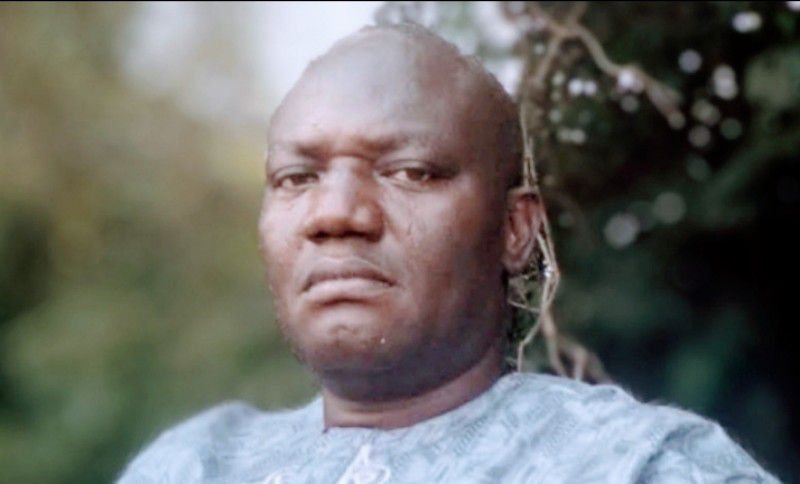By abiodun KOMOLAFE
The purported ranking of states by the West African Examinations Council (WAEC), based on their performance in the 2023 Senior Secondary School Certificate Examination (SSCE), is the focus of this piece.
In the said publication, ‘Lagos State, which hosts many private schools and home to virtually all Nigerians, is in the 6th position. The next Southwest state is Ekiti, in the 11th position. Others are Ondo: 13th; Ogun: 19th; Oyo: 26th; and Osun: 29th. Edo State came 3rd. Even Kwara State out-performed most of the Southwest states as it clinched the 18th position.’ WAEC has since denied “any association” with the publication. But then, do we need any rocket science to know that education in Southwest Nigeria has gone comatose and that the collapse is an indictment on its leadership over the past thirty years? Isn’t the leadership shameful that the region that started Free Education and levied taxation to fund education and health has now lost its pride of place? As for the followership, it’s already in a state of anomie, browbeaten into confusion. So, it can no longer ask questions!

The Southwest is no longer interested in education because the political economy of what we call the leadership in the zone, especially as pronounced in the past 30 or so years, has been based on sharing which translated into low wages. In this way, what has happened, unlike before, is that, by developing low-wages, the leadership has developed a clientele-patron relationship. All the flotsam and the jetsam of the society didn’t happen by accident. A political economy of the time we never had before was developed! After all, education means that one’s child would plan for, and pursue a high-wage economy.
In the 1950s, one of the ‘problems’ Western Region had was that it was difficult to get people in the region to fulfill its quota in the Federal Civil Service. While the East and the North were fulfilling their respective quotas, Western Region could not, simply because it was paying 18% more than the Federal Civil Service. Thus, for a man to leave Ibadan for Lagos to earn 18% less might attract eviction notice from his wife. To put it succinctly, the projection of the Southwest was a high-wage economy. The minimum wage in the Western Region was also higher than that of the East and the North; and it was deliberate! The late Obafemi Awolowo did it to steal a match on the other regions; and by the time they woke up from their slumber, Western Nigeria was miles ahead as multinational companies had already taken root in Awolowo’s West, simply because the purchasing power parity in the region was higher than the other regions.
Obviously, the multinational companies knew that that kind of economic world would invest in education which in turn would translate into higher skills. Higher skills would translate into higher wages! Higher wages would ultimately translate into higher purchasing power parity; and that attracts investments! But what the Southwest has witnessed over the years has only shown that its leaders have not been interested in education but the proliferation of apparatchiks, knuckleheads and imbeciles who’d help them rig elections and do voter suppression! Therefore, if the zone is behind in education, it didn’t happen by accident; it happened by choice!
All over the world, political economy serves as the determinant of education. For example, how come the Law Students who founded the West African Students Union (WASU) were predominantly from Western Nigeria? How come Christopher Sapara Williams, the first indigenous Nigerian lawyer was a Yoruba man? That was as far back as 1879! How come Adetokunbo Ademola, the first indigenous chief justice of the Nigerian Supreme Court, and Akintola Williams, Nigeria’s first indigenous chartered accountant, were also of Yoruba extraction? So, what has changed? If the Yorubas had produced about 43 lawyers before the East could produce one, where then did the rain start beating the Yoruba nation? That other zones have taken over has clearly shown that the Southwest no longer has a focus plan and that the political class in Yorubaland no longer has the central thrust of what politics was in the Western Region in the 1930s. The tragic truth is that the West practically lost what remained of its focus after the fall of the 2nd Republic and has not had any ideological base for politics ever since.
Awolowo borrowed from the 1945 Labour Party Election Manifesto, ‘Let us face the future’, which made Education and Health as the centerpiece of development. Unarguably, that’s what transformed the fortunes of the UK forever. The Action Group (AG) manifesto, which declared to make ‘life more abundant’ became the conventional wisdom in the Western Region and it produced decisive gains. Had the Southwest maintained its lead, shouldn’t it have been feeding itself and the rest of the country by now, more so as Agriculture is now based on technology? Had the zone applied science to Agriculture, which was what Akinola Deko and S. D. Onabamiro used in the 1950s, wouldn’t it have become the food basket of West Africa? Had it maintained education and had it developed research institutes and applied technology to upgrade agriculture, wouldn’t the zone have been feeding the rest of Africa? Unfortunately, Southwest, the beloved-but-now-troubled zone, now depends heavily on food items supplied by the North; and there is no end in sight!
In any case, there is nothing new under the sun! For the first time in two generations, the leadership in Yorubaland is not ideologically driven. All the more reason it has to go back to its roots. Yoruba leaders have done their best but they have to up the ante by going back to the knowledge base of the past and put education at the centre because, whether it is agriculture or industry, there is a new forte in industrial revolution and education is at the center space. The Southwest must reconstruct its economy and invest in education because it believes that education, just as it believed in it some 100 years or 150 years ago, is the way to a competitive economy and job creation. Not only that, it must determine to build a certain kind of internationally competitive skilled labour force that can transit into an export-oriented economy. Since a manifesto cannot be separated from the cultural base of its people, the Southwest should go back to the AG and Unity Party of Nigeria (UPN) manifestoes of 1952 and 1978 respectively if it’s to make any headway educationally, because they actually reflected the cultural base of Yorubaland.
The hood does not make a monk! Put differently, monstrous structures and grandiose aggrandizement without an accompaniment of teachers’ motivation will always end up as an illusion! A teacher who is thinking of how to sell bags of cement at Ijebu-Jesa Central Market after the school hours to augment his means cannot think of how to impact the students meaningfully. Since the zone is in dire need of teachers whose skills can be constantly upgraded, the southwest governments must think of how to build and equip the Teacher Training Colleges with a view to redeveloping the teaching cadre as a profession, not the last resort position which it presently occupies. They must also embark on curriculum revamp because the one currently in use is too lazy to prepare the pupils for a data-driven future that’s based on artificial intelligence, robotics and the like. Lastly, since education is a stand-out discipline and teaching is an art, it is actually something that must be learnt in a disciplined society. To be certified as a capable teacher who must stand before the students, methodology matters!
May the Lamb of God, who takes away the sin of the world, grant us peace in Nigeria!
KOMOLAFE wrote in from Ijebu-Jesa, Osun State, Nigeria (ijebujesa@yahoo.co.uk)


